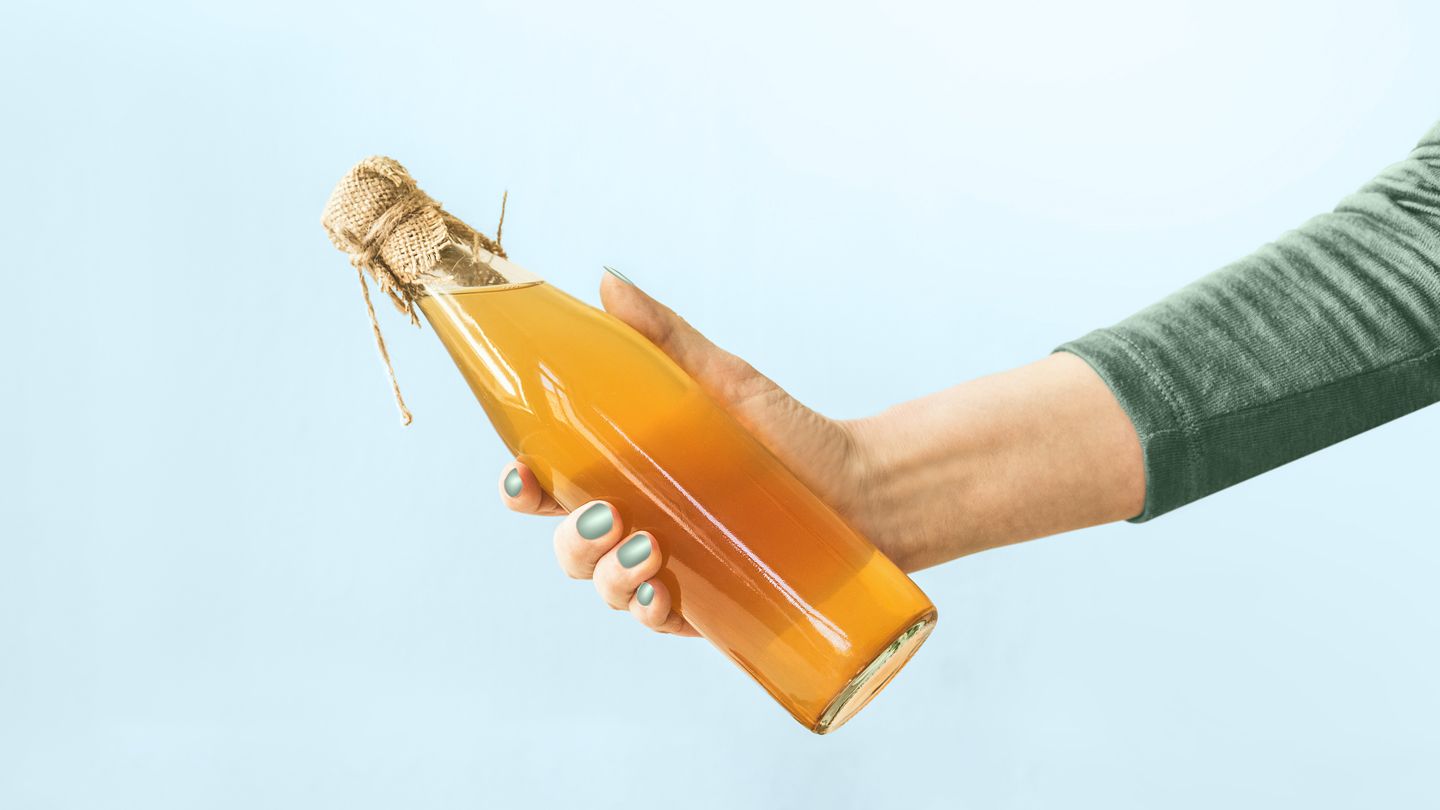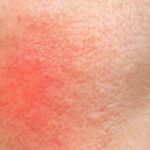Experts have mixed opinions on the use of apple cider vinegar for skin conditions. Anecdotally, they’ve heard of both successes and bad reactions. Waldman doesn’t recommend that her patients use ACV, but she doesn’t dissuade those who are using it successfully. “If you have a mild condition, it might help, but for more severe cases, it’s probably not going to be the be-all and end-all of products,” she says.
If you do use diluted apple cider vinegar for your skin, some basics to keep in mind: Your skin has an outer layer, the epidermis. “That layer is essentially like a brick wall. When you pull it apart, water gets out and irritants can come in,” Waldman says. “A lot of face washes, toners, and bar soaps are just too harsh and strip that layer.”
Acne
“We know that breaking down [dead skin] can help acne, and ACV does contain AHAs, so the potential is there, but there just aren’t good studies to show that,” Piliang says.
Anti-acne washes or treatments can be irritating to the skin, causing dryness and peeling. Adding diluted ACV to your routine could contribute to epidermal stripping and irritation.
“It defeats the purpose when you let all the water out and [let] everything outside — chemicals in the air, irritants, bacteria — in,” Waldman says. “Everyone is a little different, and oily skin probably has a higher tolerance for applying more acidic products. Sensitive, dry skin has a much lower threshold. There isn’t a one-size-fits-all recommendation.”
For teens with oily skin and acne, using ACV is less risky because their skin is more resistant to irritation. The oil protects the outer layer of skin, and it comes back faster in a younger person than an older adult with drier skin, Piliang says.
Eczema or Psoriasis
If you have psoriasis or eczema, you should be very careful about using ACV because if you put apple cider vinegar on areas of your face or skin that are already broken down, fissured, or bleeding, it’s going to burn like crazy and be very uncomfortable, Piliang says.
When you have eczema, your skin doesn’t have a strong barrier, leaving it vulnerable to bacteria, fungi, and viruses. That also puts you at high risk for infection. Some experts have recommended using diluted ACV, theorizing that it may help get rid of the microbes, therefore preventing infection. But limited research has not shown it to be effective at improving the skin’s barrier or altering the microbiome, and it may be irritating to some. Researchers have suggested that additional studies are needed.
Rosacea
People with rosacea should be very cautious about using ACV since their skin is already very sensitive and the outer layer is already damaged, Piliang says. Waldman doesn’t recommend using ACV because rosacea is complicated and could be caused by a reaction to your normal skin organisms, the sun, spicy food, coffee, or even an irritating cream.
“Rosacea can be inflamed from a lot of irritating conditions, meaning ACV could make it better,” Waldman says. “But it could very easily make it worse if used inappropriately, meaning if it’s not diluted enough or if the person is just particularly sensitive to any sort of irritant on their skin.”
Skin Infections
When evaluating skin-care products that contain apple cider vinegar, Waldman warns that you may not know the concentration of ACV you’re getting. Instead, look for products with acetic acid, citric acid, or other AHAs, or make your own toner with 1 tablespoon of organic ACV in 1 cup of water. “Otherwise you’re probably just paying for labeling,” she says.
Though medical research doesn’t yet support using apple cider vinegar as a topical skin-care treatment for specific conditions, it is currently being explored as a potential aid for skin and cosmetic benefits in clinical settings. One small study found that a twice-daily topical application of apple cider vinegar in conjunction with conservative medical treatment reduced pain, edema, itching, pigmentation, cramps, and other symptoms in participants, compared to control subjects who received only the medical treatment.
Read the full article here




